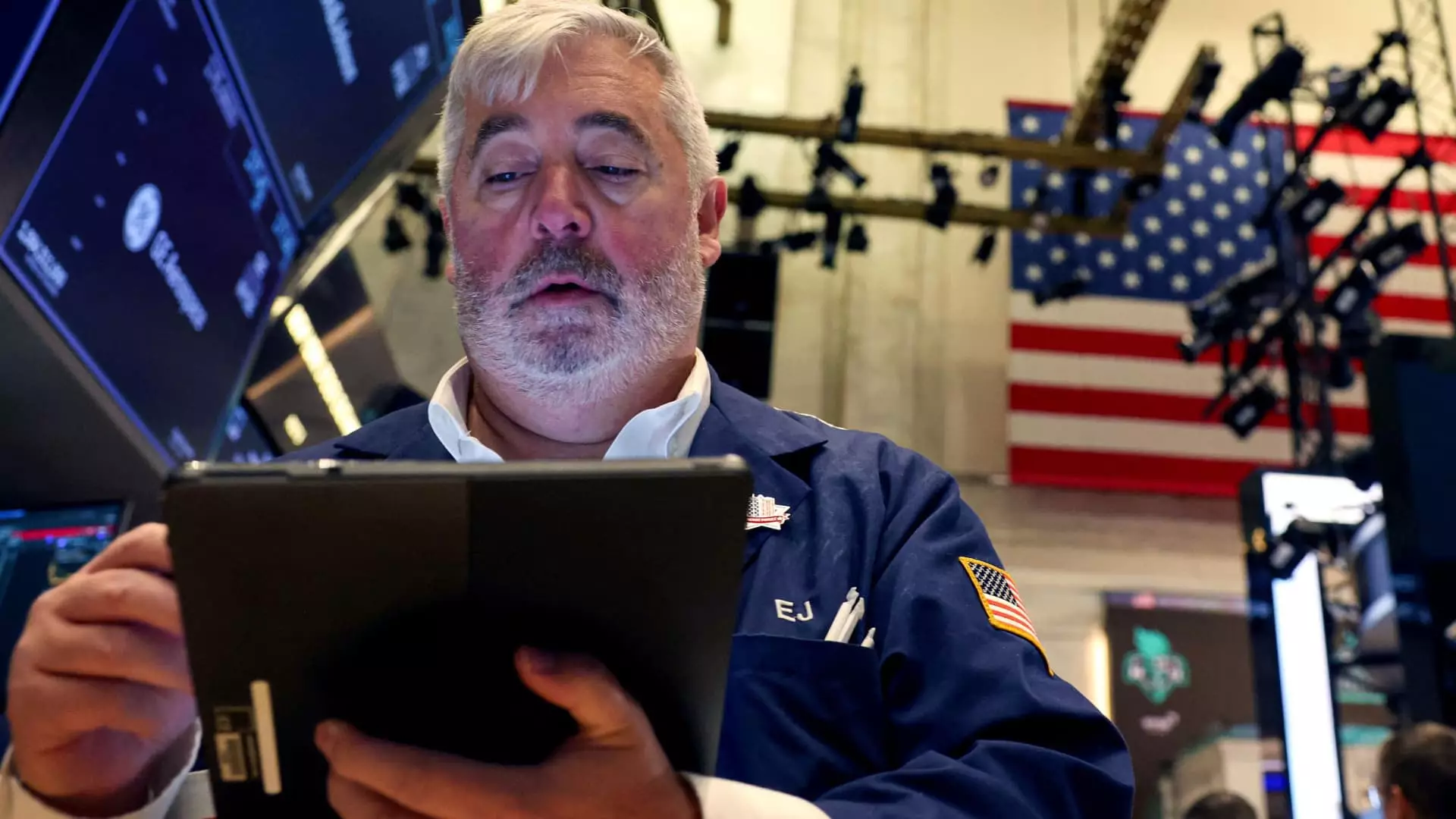In a dramatic turn of events in the financial markets, Treasury yields surged sharply in overnight trading, reflecting investor reactions to the tight presidential race between Vice President Kamala Harris and former President Donald Trump. The 10-year Treasury yield rose by an impressive 14 basis points, landing at 4.431%, which marks its highest rate since early July. Meanwhile, the yield on the 2-year Treasury also increased, climbing by 8 basis points to reach 4.285%, representing its highest point since the end of July. This movement in yields signifies deeper economic implications as investors weigh potential policy shifts that could result from the election outcome.
The relationship between bond yields and their prices is a fundamental aspect of fixed-income trading that bears scrutiny, particularly during pivotal political moments. With traders speculating on election results, early indications suggested an advantage for Trump, amplifying fluctuations in the bond market as fears and expectations fluctuate alongside electoral developments.
As reports from NBC News illustrated early victories for Trump in vital states like North Carolina and Georgia, Wall Street began to adjust its expectations. Many analysts predicted that should Trump secure a decisive victory, including a Republican sweep of Congress, bond yields could experience a substantial spike. Such movements are often linked to anticipated fiscal policies, as Republican leaders are historically associated with initiatives like tax cuts and reductions in regulations that may widen the fiscal deficit, ultimately threatening to ignite inflationary pressures.
Jeremy Siegel, a finance professor at the Wharton School, articulated concerns about how a complete Republican control could unsettle the bond market. He emphasized the potential for rising yields attributable to tax reduction policies that could lure investors away from government securities. This sentiment echoes a prevalent view among financial professionals who worry about the repercussions of such fiscal measures on long-term economic health.
The psychology of investment decisions plays a critical role in shaping market trajectories, particularly in times of electoral uncertainty. Investors are often willing to recalibrate their financial strategies based on speculative forecasts about macroeconomic trends tied to political outcomes. As Byron Anderson, head of fixed income at Laffer Tengler Investments observed, the prevailing sentiment in the markets points toward a significant expectation of a Trump victory. This has prompted substantial sell-offs across all maturities in the Treasury yield curve, a scenario he describes as influenced by the “Trump trade.”
Looking ahead, the stakes remain high, and projections vary widely among economists. According to Stephanie Roth, Chief Economist at Wolfe Research, yields are poised to hover around 4.5% should Trump emerge victorious, in comparison to a potential retreat toward the 4% mark if Harris secures the presidency. The possibility of a split Congress, where neither party can fully push through their agendas, is seen as a preferable scenario for markets aiming for stability amid volatility.
Adding another layer of complexity is the anticipation surrounding the Federal Reserve’s impending interest rate decision. With expectations of a possible quarter-point reduction, market behaviors could shift dramatically, affecting investor confidence and further influencing yield trends. Investors are continuously assessing how monetary policy will intertwine with fiscal measures from the next administration, heightening theoretical debates on the prospect of inflation against the backdrop of rising Treasury yields.
The current surge in the benchmark 10-year Treasury yield, which soared 50 basis points in October, indicates a growing concern over future government borrowing amid increasing spending demands. As the Federal Reserve prepares for its next move, market participants remain cautiously optimistic, aware that the economic landscape following the elections is poised to be transformative, for better or worse.
In essence, the rising Treasury yields amid a closely contested electoral race underscore the intricate relationship between politics and financial markets. Investors are tasked with navigating uncertainty while pondering the implications of potential policy changes that may arise from the election. Whether Trump or Harris emerges victorious, the resulting economic policies will undoubtedly leave an indelible mark on the U.S. economy and the functioning of the financial markets. The evolving narrative surrounding Treasury yields serves as a reminder of the importance of astute investment strategies in times of political flux.

